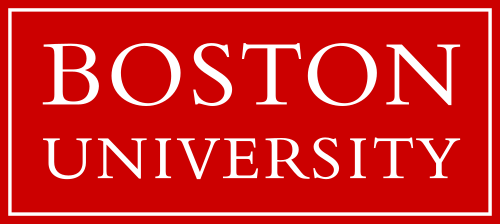The Ad Astra Academy is a unique education / exploration / development project that brings the excitement of exploration to under-resourced students around the world; Dr. Marlow serves as the organization's founder and executive director.
Inspiring at-risk students to learn through self-directed, self-motivated exploration is Ad Astra Academy's primary aim: such sustainable results will benefit marginalized communities in unpredictable and immeasurable ways. With this in mind, Ad Astra supplies classrooms with relevant math and science materials, offering eager learners appropriate resources. In consultation with education and economic development experts, we track students’ immediate and long-term progress to establish the program’s efficacy. Ultimately, the most important indicator of a student’s future academic success is her desire to learn, and we believe we can instill a life-changing thirst for knowledge in a fiscally efficient manner by helping students participate in the far reaches of humanity’s explorations.
Brief summaries of our flagship programs are below, and additional projects are being planned to serve both United States-based students and international communities. The Ad Astra Academy’s first publication on the effects of our pedagogical approach [can be found here]. Please see [Ad Astra Academy's homepage] for more details about the organization and its activities.
*****
Lagos & Port Harcourt, Nigeria: November 2019
Nigeria is Africa’s most populous country, yet public investment in education lags behind the growing number of promising students. In partnership with the Nigerian organization Earthspace, the Ad Astra Academy conducted two week-long programs of immersive field-based science and hands-on projects centered around environmental and space science. In Lagos, students from several local schools learned to ask questions and collect data through critical-thinking exercises; they visited a local beach to learn about pollution and landscape formation. In Port Harcourt, the center of the Nigerian oil industry, a separate cohort of students learned about the region’s geological history and recent changes to the landscape visible through satellite imagery.
Cidade de Deus, Rio de Janeiro, Brazil: July 2018 - April 2019
To build a sustainable culture of exploration and knowledge-seeking, we returned to the City of God and the Instituto Presbiteriano Alvaro Reis. With help from 2015 alumni, participants compared the landscape-forming forces of Rio de Janeiro with those on Mars and constructed model rovers to handle terrain challenges. With a scientifically-informed view of how to search for clues of past habitability on Mars, students videoconferenced with Mars Science Laboratory mission planners in California to share their proposed exploration strategies.
Cox's Bazar, Bangladesh: December 2017 - May 2018
Southeastern Bangladesh is defined by water: ancient rivers built and carved its lush hills, a dense network of rivers ebb and flow with seasonal rains, and the Indian Ocean laps at the sandy shore. And yet, most young people in the area - particularly girls in rural communities whose education is often compromised by financial challenges - lack the tools or background to appreciate the natural processes at work and fully recognize how they may influence daily life. Over the course of several months, the Ad Astra Academy worked in partnership with the Osel Foundation and National Geographic Education with a class of girls at a school near Cox's Bazar, Bangladesh to share the excitement of scientific discovery and provide the tools for a future of intellectual independence and educational advancement. The students acquired new images of Mars from NASA's HiRISE camera and explored nearby waterfalls, beaches, and rivers; ultimately, they presented their findings to hundreds of community and religious leaders, sharing their newfound knowledge and emphatically showcasing the enormous potential of female students.
Oakland, California: August 2017
During this mini-course, conducted in partnership with the Chabot Space & Science Center, students from the Oakland Unified School District got hands-on experience with astrobiological research. Lessons included an introduction to the scientific method, an erosion hike, and self-directed microscopic exploration of a local pond. To experience a real-life research project, students enjoyed a private tour of the Lick Observatory, where they observed distant galaxies through historic telescopes. Assessment of the efficacy of the modules used in this edition of the Academy are on-going.
Cidade de Deus, Rio de Janeiro, Brazil: June - November 2015
The program's pilot project took place in 2015; our team of scientists and educators traveled to Rio de Janeiro's City of God to share NASA science – through hands-on experiments, underwater robots, and field trips to local islands – with a group of kids who would otherwise never be exposed to it. Ultimately, the students joined the front lines of exploration as they selected targets on Mars for high-resolution imaging with NASA's HiRISE camera, expanding our knowledge of the universe and unlocking their own potential in the process. Evaluations demonstrated statistically significant improvements not only in students' knowledge of the scientific method, environmental science, biology, and planetary science, but also - and perhaps more importantly - in self-assessments as scientists able to create new knowledge and benefit their community.
*****
The Ad Astra Academy operates under the administrative structure of Blue Marble Space, a 501(c)(3) public charity dedicated to promoting and enabling international unity through space exploration. We have enjoyed close collaborations with the National Geographic Society, the Osel Foundation, the Instituto Presbiteriano Alvaro Reis, the Developing Minds Foundation, The University of Southern California's Rossier School of Education, the Chabot Space & Science Center, and OpenROV.
Press Coverage: [WIRED], [O Globo, Brazil], [Le Figaro, France], [Veja, Brazil], [The Planetary Society], [Diario, Brazil]



